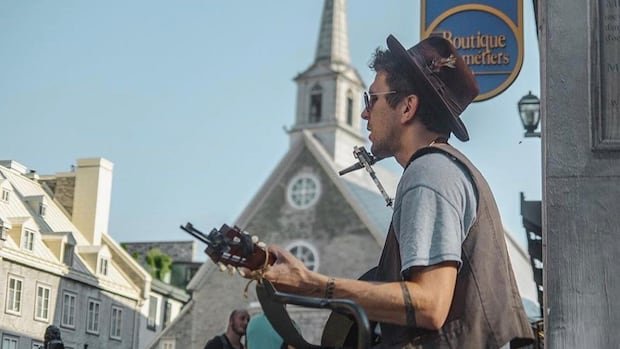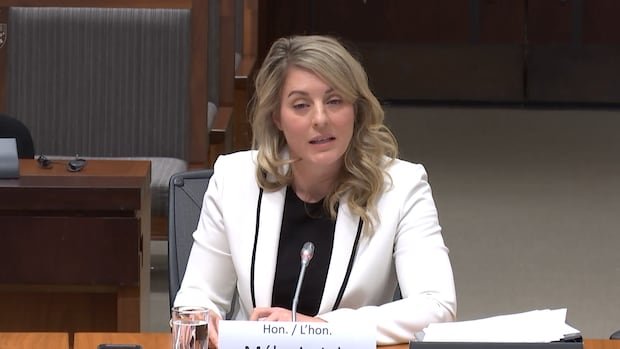Nine years have passed since Bosko Baker was approved to be a street musician in the city of Quebec and began playing in central areas and tourist centers.
In those early years, clinging in the Petit Champlain sector and Saint-Jean Street, he described the busking scene as a melting pot of artists. But since its debut, he says that the city rules have changed dramatically.
Over the years, some popular Busking areas have been eliminated from the city’s approved list and regulations have limited the type of music that can be done. Now, artists must sing exclusively in French or play instruments in two areas.
“The cultural mixture that was so beautiful in Quebec is removed,” said Baker, who is originally from the United States and used to act in New Orleans.
“The more limits, the more you will have artists who are less inspired to get art.”
According to the regulation of the city with respect to public artists, modified in May, buses must act in French or play instruments in two places located in Petit Champlain.
In a statement sent by email, a city spokesman said that these two sites are reserved for French music to “underline the 40th anniversary of the inclusion of Quebec in the list of world heritage cities.”
He says that the “reality of the Francophones in the city of Quebec” and in these sectors deserves to be even more highlighted this year due to the anniversary. The city said the new rule is part of a pilot project that will be reassess.
“It’s a kind of way of doing it,” Baker said. “I prefer to sing in any language we want.”
“The most regulated place in the world to play,” says the violinist
Since 2017, Birdie Veilleux says that the Street music scene has constantly decreased in the city of Quebec.
A violinist who grew up in the city of Quebec and plays with Baker, says that the capital of Quebec has become “the most regulated place in the world to play.”
He said the rules continue to accumulate, especially in the Petit Champlain area. Veilleux says that some of these changes mean a loss in traffic and income for musicians.

Among the 53 remaining busking sites listed in the city, most include a limit in the number of hours that a musician can act per day, as well as the number of people in a singular group.
In its email, the city said that the number of sites available for musicians this year is the same as in 2024. He also said that the locations are the same as last year and that it is probably due to differences.
The city says that rules are established to respect people and merchants near the sites.
“It is essential to find ways to limit discomfort and allow artists to show their talent in adequate places,” said their statement.
Veilleux says he understands the strict rules point, but at a certain point, it is excessive.
“It’s like a hidden jewel for buses [in] Quebec It can be really advantageous, “said Veilleux.” But now I feel that he is so regulated that he loses this attraction. “

Despite the thorough audition process of the city, he says that the quality of buses has decreased and some career musicians have renounced him.
“It’s much more difficult today,” said Veilleux.
‘We were never warned’
Over the years, Veilleux says that there have been requests and artists have brought their concerns to the city.
He says that the most recent rules in Petit Champlain with respect to French songs are particularly disappointing taking into account that these two sites are in areas only for pedestrians.

“It was like the last remaining place where adequate crowds and adequate wages could be obtained,” he said. “We were never warned or consulted.”
As a Francophone president, he says that art should not be restricted in this way.
“I am a separatist, but I still think that this rule is ridiculous,” he said, adding that the culture of the city of Quebec is not just French.
“The natives who want to sing in their language, could not even act,” he added.
While all this is happening, he points out that many restaurants on American pop street on Saint-Jean Street on its terraces.
“And that is totally well,” said Veilleux. “It’s crazy.”








